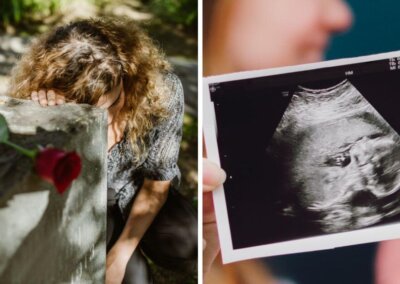A representative from the UK Government has told the United Nations General Assembly that countries “must act now” to increase the availability of abortion, including ‘DIY’ abortion, for the sake of “sustained and inclusive economic growth”.
On Monday 25 April, Chris Carter, Head of Human Development at the Foreign and Commonwealth Office, addressed the United Nations General Assembly at the 55th session of the Commission on Population and Development on behalf of the UK Mission to the UN.
During his speech, he argued that abortion was an essential aspect of “sustained and inclusive economic growth” for women and girls.
Carter said: “Member States must act now to ensure women, adolescents and girls around the world can access quality and comprehensive sexual and reproductive services, including safe abortion…”
He also blamed “anti-gender movements” alongside the pandemic and other legal, economic and social barriers for limiting access to abortion.
Carter linked the promotion of human rights to the promotion of abortion, referring to abortion when he said: “We all know that sustained and inclusive economic growth can only be realised when all women, adolescents and girls have their full human rights respected, protected and fulfilled, including comprehensive sexual and reproductive rights”.
The UK representative also urged Member States of the UN to “prioritise” the use of “innovative delivery models like telemedicine” to make abortion more easily available.
Telemedicine abortion, or ‘DIY’ home abortion, refers to occasions when a woman seeking an abortion does not have to have an in-person consultation with a medical professional before she has an abortion. They take place either over the phone or online, and then the woman seeking the abortion is either sent abortion pills through the post or is able to collect them.
‘DIY’ abortion was made legal in the UK in March 2020 on a temporary basis as part of the Government’s pandemic response. Between April 2020 and September 2021, more than 10,000 women had to receive hospital treatment following the use of medical abortion pills in England. Parliament has recently voted to make this scheme permanent, despite the Government’s insistence that it “was always intended to be a temporary measure” as part of other emergency legislation.
Right To Life UK spokesperson, Catherine Robinson, said: “It is disappointing to see the UK mission to the UN promoting a deeply repulsive ideology that pits women against their own children. It implies that women’s own biology, and specifically their ability to become pregnant and give birth to children, is a reason that they might be held back which can only be mitigated by abortion. This is a disgusting message that treats pregnancy as a disease and healthy pregnant women as if they are ill”.
“No matter how many times he might repeat vacuous slogans about abortion being ‘key to unlocking women’s agency and potential’, Mr Carter should be reminded that there simply is no internationally recognised right to abortion”.











